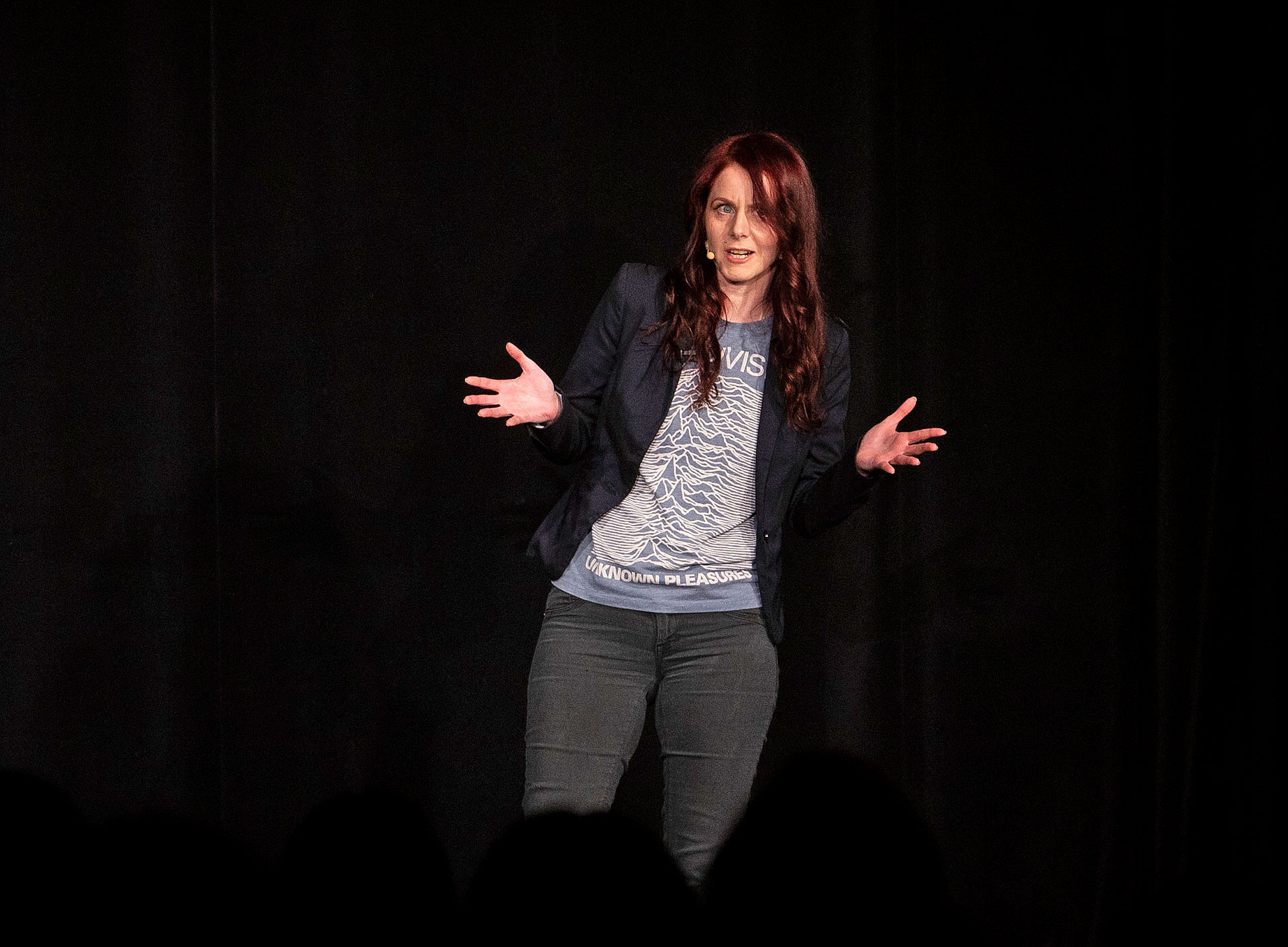Why is "native speakerism" a dangerous dragon?
Who is the best person to teach a foreign language? Someone who learnt it as the first language? "Not necessarily," says English specialist Silvia Lasnik. "We have to slay the dragon of native speakerism." She impressed the jury with the vivid picture she painted in her presentation. They chose her as the winner of the 3MT Graz 2024. "Pedagogical and didactic skills are just as important as language skills," emphasises Lasnik. In her doctoral thesis, supervised by Hermine Penz, she is investigating how the dragon paralyses teachers. "If they are afraid to speak in a foreign language because they don't think they know it well enough, then this has a negative effect on their teaching," says the doctoral student. "Especially with English, which is used worldwide as a bridge language, communicative competence should come first, before grammar and accent." This needs to be taught as early as the teacher training programme. Because future teachers should be able to emphasise speaking over reading and writing when designing their own lessons.
How do protein communication errors cause cancer?
In her doctoral thesis at the Institute of Pharmaceutical Sciences, Sarah Masser is uncovering mechanisms of cancer growth. With a captivating presentation on stage, she wowed her viewers and listeners, who rewarded her with the 3MT People's Choice Award 2024. "Abnormal protein-protein interactions (PPIs) and post-translational modifications (PTMs) play a role in the development of malignant tumours. They can activate cancer genes or deactivate tumor suppressing genes. Malfunctions in cell metabolism can also be a consequence," says Masser. As a member of Ulrich Stelzl's research group in Pharmaceutical Chemistry, Masser is investigating the communication of two enzyme groups that switch signalling pathways of cell metabolism on and off. She is thus contributing to a better understanding of the molecular mechanisms of cancer. "New findings should make it possible to treat different types of cancer in a more targeted manner. This would lead to more effective and less toxic therapies," the doctoral student explains.
The 3MT Competition is organised annually by the Coimbra Group, an association of particularly renowned and traditional European universities. An international jury will now select three winners from the regional competitions for the final in Turku/Finland on 6 June 2024. The University of Graz is keeping its fingers crossed for Silvia Lasnik.
